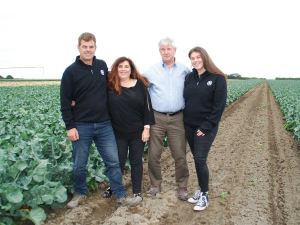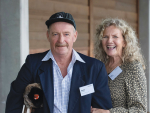Tony Coltman & Dana Carver: Canlac Holdings – Dunsandel, Selwyn
Dairy
Canlac Holdings was a high-performing farm when this couple took over in 2013 and their focus on good management practice means they have lifted it to another level.
The business demonstrates how it’s possible to look after the environment while still being profitable. For example, the farm is bringing in high profits while at the same significantly reducing its environmental footprint – including cutting nitrogen leaching by 48%.
Priorities include stock health, maximising a high-genetic herd and leaving the farm in top environmental condition for future generations via such things as plantings, soil fertility and irrigation.
The couple has clear goals for both themselves and the health and wellbeing of staff, plus are heavily involved in off-farm activities.
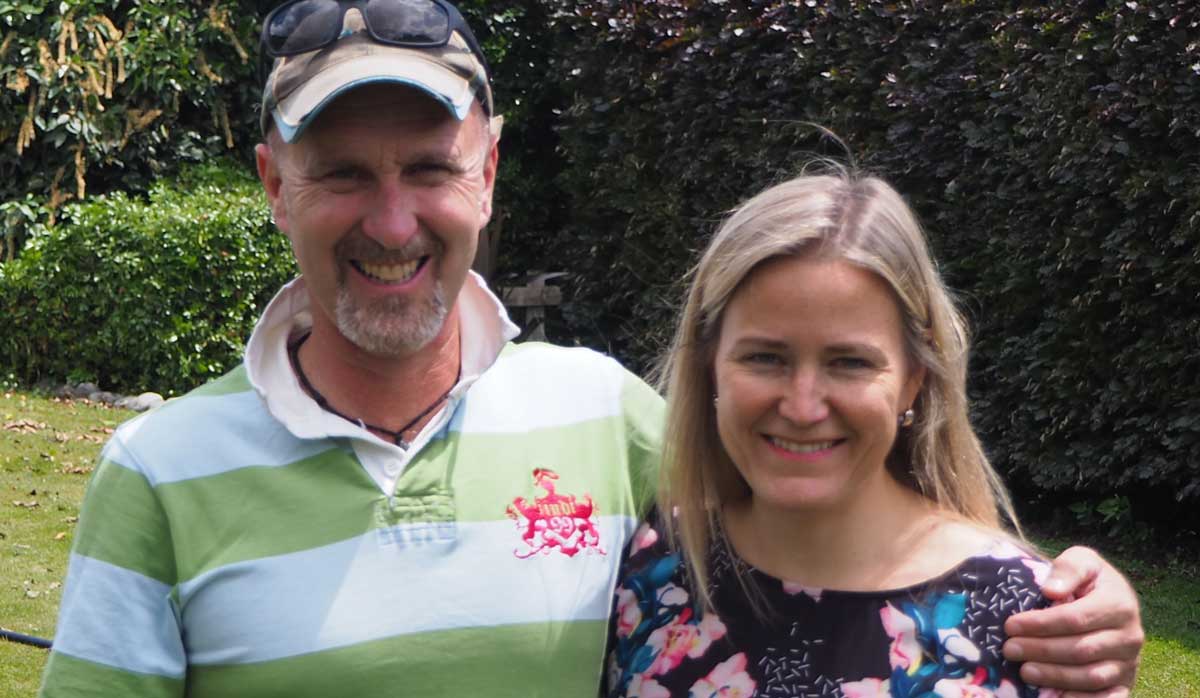 |
|---|
|
Tony Coltman & Dana Carver. Image courtesy NZ Farm Environment Trust. |
Robin Oakley: Oakley’s Premium Fresh Vegetables – Southbridge, Selwyn
Horticulture
Taking notice of the small things is proving to be a recipe for success at Oakley’s Premium Fresh Vegetables.
Operating over 400ha, this Canterbury vegetable producer is the main supplier of potatoes, beetroot, pumpkin and broccoli to one of the South Island’s biggest food chains.
Owner Robin Oakley says it can be the small things and observations that make all the difference to sustainably producing quality vegetables. To enhance crop performance, his team keeps a close eye on crop rotations, soil cultivation, soil nutrients and irrigation, plus they adapt to environmental conditions.
An innovative, agile approach is taken across the business, resulting in consistently high-quality vegetables that meet the changing demands of consumers.
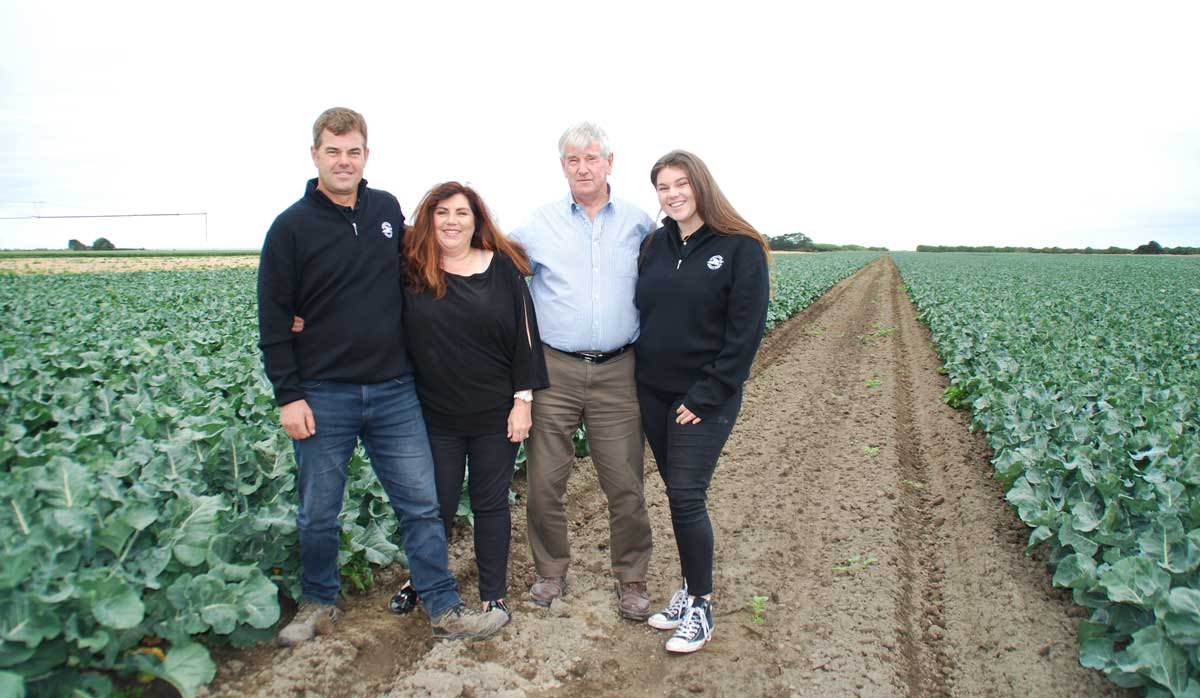 |
|---|
|
(L-R) Robin, Shirleen, Graeme, and April Oakley. Image courtesy NZ Farm Environment Trust. |
John Taylor, Brednon Stent & Aafke Huisman: Rosebank – Landcorp Farming Pāmu – Carew, Ashburton
Dairy Support
Rosebank is a leader in the field of agricultural sustainability and its investment in infrastructure over the past six seasons has been game-changing.
Primarily a dairy support block, the Canterbury property has diversified by trialling new crops, fertiliser regimes and stocking rates, plus has a strong commitment to biodiversity.
Growing 1,500 replacement stock, the farm has been transformed in recent years thanks to impressive investment in development and capital projects – driven by a focus on sustainability. Different cropping options are being trialled – diversifying and spreading risk, while also aiming to reduce nitrogen leaching and greenhouse gas emissions.
In addition to prioritising stock performance and health, there is also a strong community involvement outside of the farm gate.
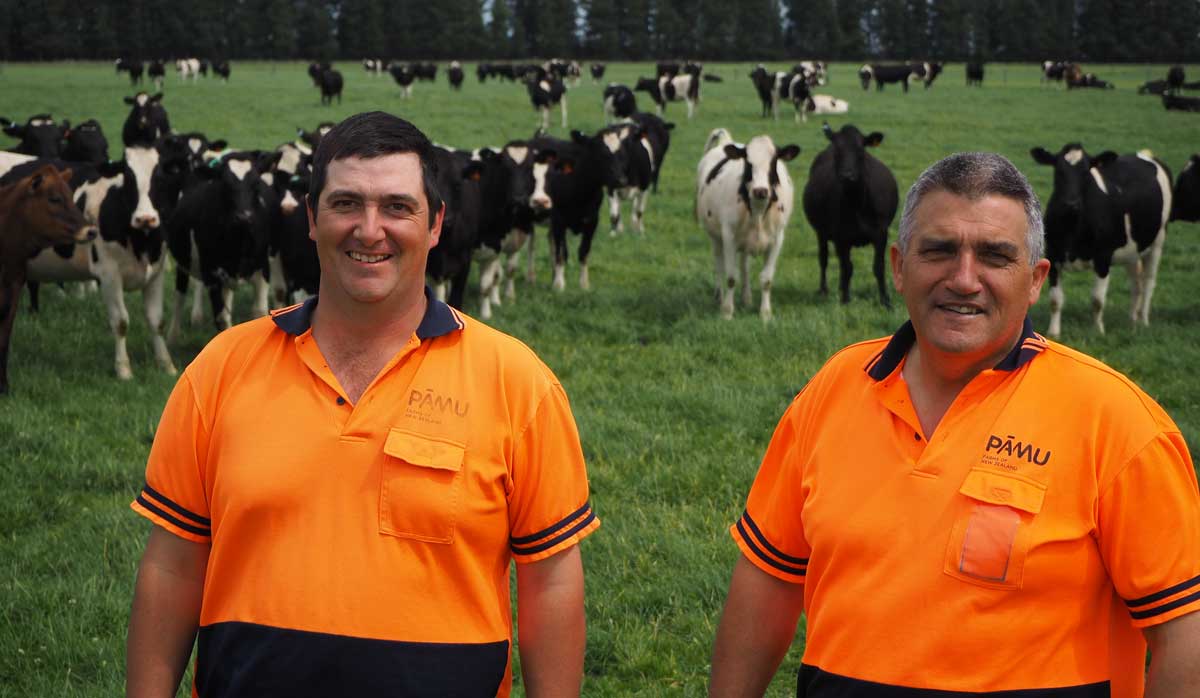 |
|---|
|
John Taylor (left) and Brendon Stent. Image courtesy of NZ Farm Environment Trust. |
Richard & Chrissie Wright: Tamar Farm – Mount Somers, Ashburton
Beef, Dairy, Cropping
Scale is no barrier, and attention to detail paramount, at this property that has grown considerably since the Wrights bought it in 2002.
The farm is self-contained in terms of stock replacements and grazing, ensuring a profitable and productive business with very healthy animals. The hands-on managers are passionate about farming and proud of their team members – actively advancing them into farming.
A significant number of trees have been planted on the property, including shelter belts, ornamental and native plantings. The farm has responsible grazing practices and crop rotation, a focus on energy efficiency and technology, and excellent management of nutrients.
The business is an inspiring example of a family committed to advancing good people into farming and providing options for family succession.
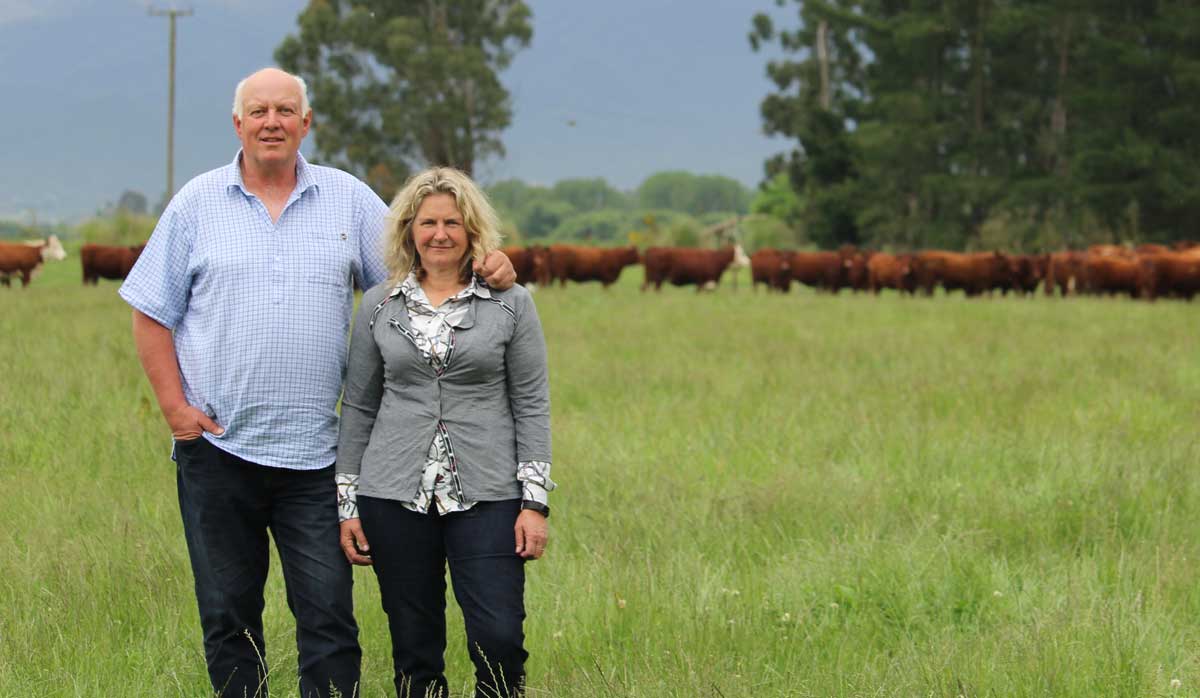 |
|---|
|
Richard and Chrissie Wright. Image courtesy NZ Farm Environment Trust. |
Mike & Nicky Salvesen: Wakare – Mount Somers, Ashburton
Breeding & Finishing Deer & Beef Cattle
A progressive vision for the future is guiding this Canterbury beef and deer farm, enabling it to adapt to changing conditions and reduce its environmental footprint.
The main block runs calving cows and breeding bulls for dairy herds, deer for venison production and about 1,000 lambs. Genetic measurements are tracked as the business strives to continually improve the quality of the animals. A second block runs dairy grazers and Wagyu beef, provides capital protection and forms part of the succession planning.
Numerous improvements have been made to the property in terms of production and the environment – including a significant tree-planting programme.
All activities are guided by an acute awareness of how they can affect the local and wider environment.
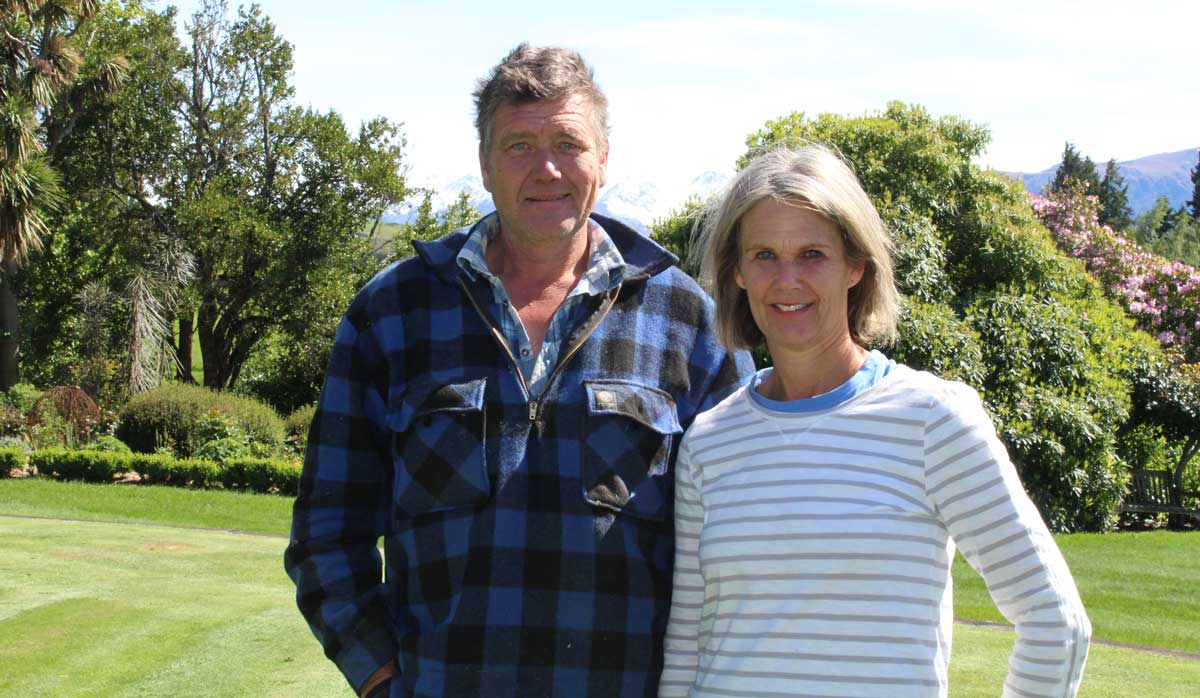 |
|---|
|
Mike and Nicky Salvesen. Image courtesy NZ Farm Environment Trust. |





